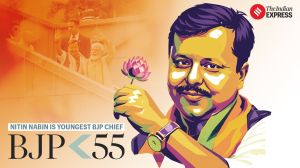On The Shelf
The Future of Freedom: Illiberal Democracy at Home and AbroadBy Fareed Zakaria In the nineties, Fareed Zakaria 8212; then managing editor o...

The Future of Freedom: Illiberal Democracy at Home and Abroad
By Fareed Zakaria
In the nineties, Fareed Zakaria 8212; then managing editor of the journal 8212; created a stir with an essay in Foreign Affairs about the rise of illiberal democracy. That controversial thesis 8212; a caution against recommending democracy without first nurturing democratic institutions and the notion of liberty 8212; has now being expanded into a full volume, and sparks have already begun to fly from critics in early reviews. A must read for all those who recommend the spread of democracy as a solution to all global ills.
Constant Touch: A Global History of the Mobile Phone
By Jon Agar
One needs to jump off the daily treadmill to really appreciate how the mobile phone has changed our lives 8212; how we communicate, how we organise our lives and how we multitask. Indeed, how we measure distance. Agar8217;s book appears to be as much of a technological overview as of a crash course in pop sociology. He harks back to the nineties when the mobile was still seen as an elitist, yuppie accessory, when it was yet another way of establishing inverse snobbery. Today, when the mobile phone has cut across all social and many economic barriers, that seems like a lifetime ago.
Khrushchev, The Man and the Era
By William Taubman
Strobe Talbott, Khrushchev8217;s translator during his student days at Oxford and a reputed Russia hand, has already labelled this the most comprehensive biography of Soviet liberaliser. Today, as Stalin8217;s dark legacy and the Cuban missile crisis continue to be debated, an appraisal of the man who influenced that other Soviet reformer, Mikhail Gorbachev, is timely.
- 01
- 02
- 03
- 04
- 05































